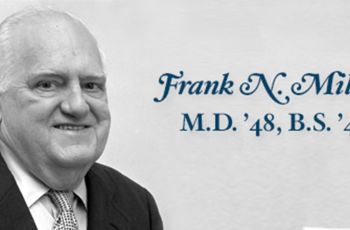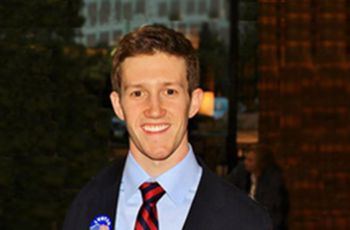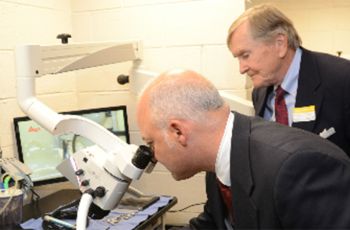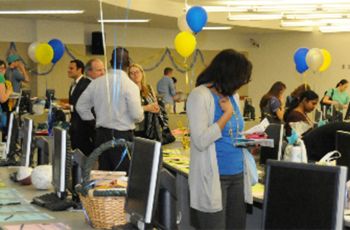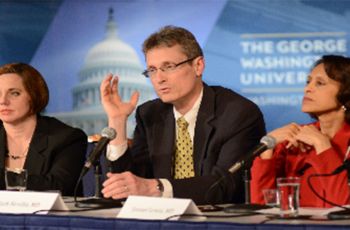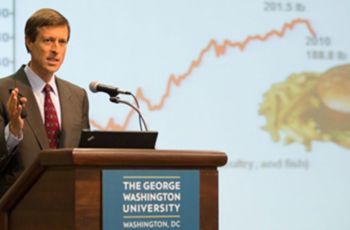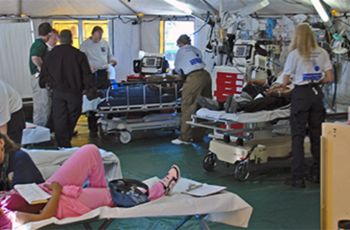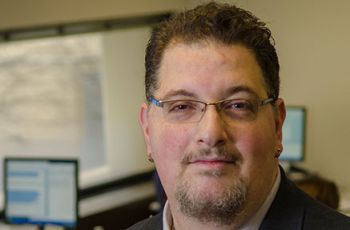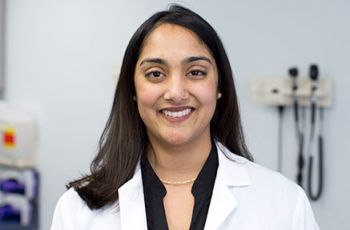Featured News
As a professor, mentor, and friend, Dr. Frank Miller was one of the most beloved faculty members at the GW School of Medicine and Health Sciences. He was an outstanding teacher, shaping the future careers of generations of medical students from 1944 until his retirement in 1985.
Josh D'Angelo, a third-year doctor of physical therapy (DPT) student at the GW School of Medicine and Health Sciences, is the first GW student to receive the prestigious Mary McMillan Scholarship Award.
Students, staff, and faculty gathered in Ross Hall for the grand opening of the Center for Otolaryngology Microsurgery Education and Training. The six station lab will be used as a surgical training and simulation center for otology and lateral skull-base surgery.
Members of the GW community converged on Ross Hall to place their bids at the GW student-run HEALing Clinic’s 14th annual charity auction, April 11.
The George Washington University Hospital has been moving medicine forward for the benefit of the region and beyond since 1825.
Friends of the George Washington (GW) University gathered at the Jack Morton Auditorium for a discussion about women’s heart health led by a panel of experts from the GW School of Medicine and Health Sciences (SMHS) and the GW Medical Faculty Associates (MFA).
The George Washington University’s Urban Food Task Force hosted its first-ever “Research and Education in Food and Nutrition” expo March 28.
Christine George is quick to admit that she’s a bit of an adrenaline junkie. “It’s horrible when disasters happen,” she says, “but when there’s something you can do about it for those who are suffering, it’s incredibly rewarding.”
Gaetano "Guy" Lotrecchiano, Ph.D., Ed.D., assistant professor of clinical research and leadership, and of pediatrics at the George Washington University (GW) School of Medicine and Health Sciences (SMHS), took some time out of his busy schedule to talk to us about his latest research and his road…
Dipa Sheth, M.D., assistant professor of medicine, was interviewed by GW Today about allergy season, and what people can do to mitigate its effects.
